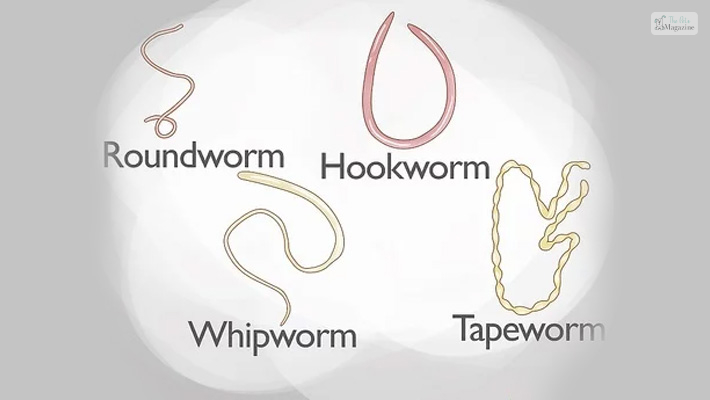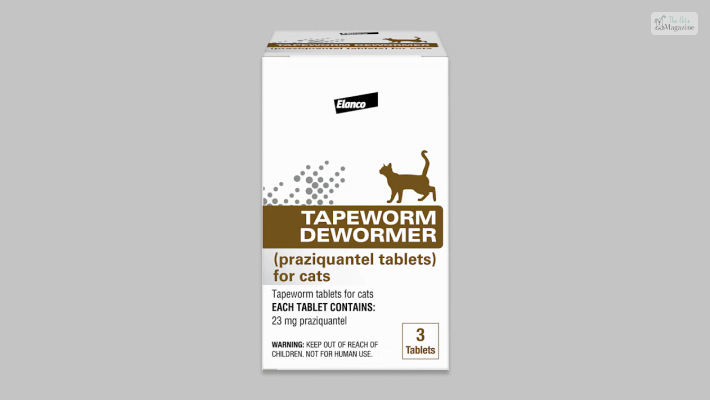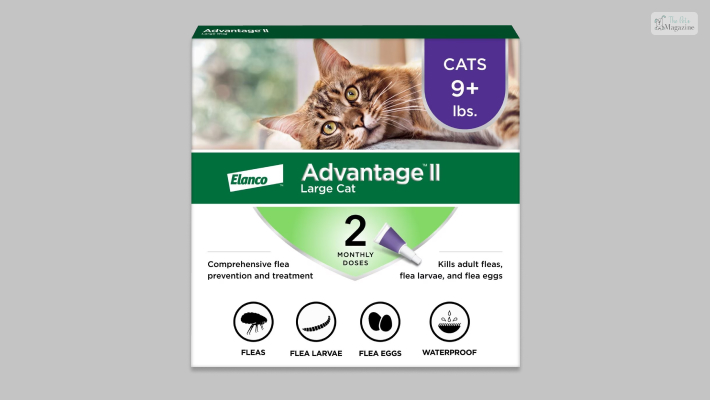When you find worms in your cat’s stool, it is truly disgusting. But what is even more concerning is that they could need medical attention due to it. Worms are a common phenomenon in cats both outdoors as well as indoors.
Does medical attention mean expensive vet bills? And if you are worried about costly vets, or that your cat just hates vet visits, or there isn’t a vet nearby– worry not. We are here to present 5 alternatives for deworming your cat at home.
Symptoms Of Internal Feline
If you think your cat has worms, but it looks perfectly healthy from the outside, do not take it lightly. Because in the meantime, parasites could be increasing in their gut which is known to extract blood and vital nutrients to live off of the host. The possible symptoms could vary, depending on the type of worms that your cat has. The vet will run a few tests to detect the worms before prescribing any medication. A dewormer for cats does the job.

Cats can pick up worms at all stages of their lives, but the cats that hunt are more susceptible to getting worms. If they prey on birds, rodents, or mice outside that are known carriers of intestinal parasites, your cat could be infected more easily.
Kittens, too, are vulnerable to worms as larvae could get passed down from the mother cat when breastfeeding. It could also get them to contract tapeworms from ticks and fleas. You must deworm your cat regularly, looking for symptoms of worms, and also get a dewormer for kittens to remove the problem from the roots.
Here are some of the early symptoms of worm infestation in cats:
Change in texture of coat:
If your cat’s fur looks dull and rough even though you brush it regularly and it appears clumped or rumpled in places, then it is a sign that your cat has parasites.
A change in the color of your cat’s gums:
The color of a healthy cat’s gum should be pink. So if you notice that your cat’s gums are looking pale or whitish, then it is a symptom of anemia caused due to worms.
Frequent vomiting:
Vomiting in cats is not always a cause for concern as it can happen for several reasons, such as hairballs and overeating. But if you see your cat throwing up white foam or vomiting a lot, then it can either be due to parasites or a serious issue like irritable bowel disease.
Change in stool color:
If you notice any change in the color of your cat’s stool, such as if the color is black or tarry. Black or tarry stool indicates the presence of digested blood caused due to bleeding in the upper gastrointestinal tract. Parasites such as hookworms are responsible for bleeding in the gastrointestinal tract. In addition to the color, if your cat is suffering from diarrhea frequently, then it is also a sign of worms.
If you have noticed some of these symptoms and now you are running off to get a cat dewormer, then stop! This is because first, you need to determine what type of worm your cat has. Here is a list of some of the most common worms found in cats.
Roundworms
Roundworms are the most common type of worm, affecting cats and kittens especially. These worms are 3-6 inches long (7.62 to 15.24 cm) that are smooth and round-shaped. The symptoms are not noticeable initially, although your cat could be having a few of those. The eggs that get excreted through their feces are absolutely tiny. They are not visible to the naked eye.
Symptoms of roundworms:
- Dull coat
- lack of energy
- Diarrhea
- Vomitting
- Enlarged Abdomen
- Unhealthy appearance/weight loss despite usual feeding or appetite, and swollen stomach (in kittens)
- Intestinal obstruction in serious cases

Tapeworms
This particular worm is visible in your cat’s feces. They look like long white pieces of rice grains. They are named so due to their segmented, flat bodies. If your cat has tapeworms, you will see them licking or scratching the area under their tail.
These worms can infect your cat if they drink water that is infested with these worms or eat rodents or mice that have tapeworms. These worms feed on essential nutrients from your cat’s body. They mostly affect adult cats, and their symptoms are:
- Itchiness under the tail
- Increased appetite
- Small pieces of rice-like worms stuck in the fur near the tail
Hookworms
Not as common as tapeworms and roundworms, these are small worms that can only be seen under a microscope. They attach themselves to the small intestine of your cat and feed on its blood.
If these worms infest heavily, they can cause inflammation, intestinal bleeding, and anemia. Cats can get hookworms if they come in contact with hookworm larvae that can be found in water, soil, or litter. These worms can be very dangerous, especially in younger cats. Detecting these worms early on can help your cat live a better life. Kittens can contract hookworms when breastfeeding if the mother cat is infected.
If your cat has been infected with this worm before, it won’t be contracting them again, becoming immune to it with no symptoms.
Symptoms of hookworms in cats are:
- Constipation
- Anemia
- Diarrhea
- Blood in stool
- Poor appetite
- Abdominal pain
- Pale nose, lips, and mouth areas
Lungworms
These worms can affect your cat’s lungs which could lead to breathing problems. Fortunately, these worms are less common and much less fatal in cats. The chances of your cat contracting lungworms become high if it eats lungworm larvae that are found in birds, rodents, and water.
Snails, too, carry these worms and could transfer them to your cat when out hunting. These worms could cause severe lung issues and breathing difficulties.
The symptoms of having these worms are:
- Wheezing
- Difficulty in breathing
- Coughing
- Fluid build-up in one or both lungs
Our Top 5 Dewormers: How To Deworm A Cat?
If you are asking yourself how to get rid of worms in cats, you are sorted. We shall delve into some of the best dewormers that can be administered at home without professional intervention:
1. Elanco’s Tapeworm Dewormer
If you don’t want to visit the vet because of a tapeworm problem, this medication can do the job well. This medication comes in the form of a tablet that can be given to the cat directly or can be crumbled over food.

The active ingredient in this medicine is praziquantel which is very effective against Taenia piriformis as well as Dipylidium caninum tapeworms. This treatment is safe to be given to cats over a period of six weeks.
2. Hartz Ultraguard Rid Worm Dewormer

If you think your cat has roundworms, this medication can help. It comes in a syrup form, which makes the administering of this drug so much easier. This treatment, when repeated for 14 days, can eradicate your cat’s roundworm problem completely.
3. Homeopet’s Clear Dewormer

In case you want to take a more natural approach, this product can help you clear your cat’s worm problem and also get rid of a number of other parasites. This medicine has natural ingredients that are safe for cats, including kittens and pregnant cats. The dosage must be continued for two weeks for full effectiveness.
4. Advantage II Flea Spot

This flea treatment works in a way that helps stop the lifecycle of these insects. Having fleas and ticks can make your cat’s life pretty irritable. This medicine is a boon.
5. Drontal’s Dewormer

This dewormer is effective against a hoard of parasites and is suitable for a new pet owner who wants to take care of all the worm problems in one go. Effective against roundworms, hookworms, and tapeworms, this product is a little more pricey, but it is worth saving the vet visit.
Tips To Prevent Worms In Cats
Here are a few tips that you can follow to prevent intestinal worms in your cats –
- Give your cat preventative medication all year round. You can consult your veterinarian to find out about the best medicine to prevent worms in cats and kittens.
- If you have an indoor cat, then clean the litter box on a regular basis. Change out the litter daily or every alternate day, and make sure to scrub the litter box thoroughly with disinfectants on a weekly basis.
- If you have an outdoor cat, then make sure to regularly clean feces present in the yard, flower bed or sandbox, or any other place where your cat normally poops. You should also try to discourage your outdoor cat from going hunting as much as possible since they can get infected with worms if they come in contact with other infected animals like rodents.
- Make sure to get your cat screened for worms once a year. You can do this by collecting your cat’s poop sample and taking it to the vet’s office. At the vet’s, they will carry out a fecal float test to check for parasite eggs.
To Conclude
If you are looking for a solution to your cat’s deworming issues while you are on your pet parenting journey, these 5 names in deworming medication can help you immensely. Visiting the vet can be burdensome for you as well as your feisty little feline. Try these out before you take the long road.
If you have thoughts to share with us regarding cats and deworming, leave a comment below. We would love to hear from you.
Recommended Reading:
- French Bulldog Pitbull Mix (French Pitbull): A Complete Guide
- Everything to know about the Golden Retriever and Siberian Husky Mix
- How Long Can A Dog Have Worms Before It becomes fatal? Everything you need to know













